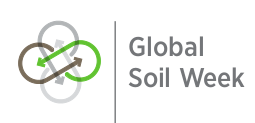“A transformation towards sustainable soil management is possible if all actors are integrated in the search for solutions.” These were among concluding remarks made by Klaus Töpfer, Executive Director, Institute for Advanced Sustainability Studies (IASS) and Chair of the Third Global Soil Week.
Töpfer welcomed the contribution of the Secretariats of the UN Convention to Combat Desertification (UNCCD) and the UN Framework Convention on Climate Change (UNFCCC), noting “this sends a strong signal” of the growing shift from silos towards "a systems approach” in addressing multiple agendas.
 24 April 2015: “A transformation towards sustainable soil management is possible if all actors are integrated in the search for solutions.” This statement was among concluding remarks made by Klaus Töpfer, Executive Director, Institute for Advanced Sustainability Studies (IASS) and Chair of the Third Global Soil Week. Töpfer welcomed the contribution of the Secretariats of the UN Convention to Combat Desertification (UNCCD) and the UN Framework Convention on Climate Change (UNFCCC), noting “this sends a strong signal” of the growing shift from silos towards “a systems approach” in addressing multiple agendas.
24 April 2015: “A transformation towards sustainable soil management is possible if all actors are integrated in the search for solutions.” This statement was among concluding remarks made by Klaus Töpfer, Executive Director, Institute for Advanced Sustainability Studies (IASS) and Chair of the Third Global Soil Week. Töpfer welcomed the contribution of the Secretariats of the UN Convention to Combat Desertification (UNCCD) and the UN Framework Convention on Climate Change (UNFCCC), noting “this sends a strong signal” of the growing shift from silos towards “a systems approach” in addressing multiple agendas.
The overarching theme of the four-day meeting was the role of sustainable soil management and responsible land governance in realizing multiple Sustainable Development Goals (SDGs) and contributing to a new climate agreement. Participants noted that soil is specifically mentioned in three SDGs, reflecting soil quality, soil pollution and land degradation, and underscored that ten of the SDGs relate directly or indirectly to soils.
Reporting the outcomes of a dialogue session on food security and sustainable food systems, Maryam Rahmanian, Centre for Sustainable Development, Iran, noted that for the first time, the discussion of food security had included access, equity, distribution as well as food sovereignty. In a keynote address on efforts to establish land rights in Rwanda, Klaus Deininger, World Bank, said they illustrate the risks that are often involved in land interventions and stressed that proper land planning and an inclusive and multi-stakeholder approach are indispensable, as “mistakes may be fatal.”
In his Chair’s Conclusions, highlighting some areas of “emerging consensus,” Töpfer noted the meeting had underscored that achieving food security and the right to food means “securing access to land for the billions of smallholder farmers who are the primary investors in their own agriculture.” He further observed that technologies for soil rehabilitation “are not neutral” and that large-scale soil rehabilitation efforts, in particular, need to be based on a human rights framework and contribute to the “progressive realization of the right to food.”
Several sessions at the meeting addressed interlinkages between sustainable land management (SLM) and climate change adaptation and mitigation. Participants stressed that soils are the largest terrestrial carbon storage reservoir, hence sound soil and land management holds the potential to increase soil organic carbon content and contribute to climate change mitigation and adaptation, while increasing productivity. Among practical experiences in this area, participants highlighted SLM governance at the community level, as well as socially inclusive pathways for Greenhouse Gas (GHG) reduction and enhancement of carbon sinks through REDD+. Töpfer highlighted France’s “4 pour 1000” initiative – referring to an increase in parts per thousand of organic soil carbon – as a “valuable” contribution to calls for increased coherence in the post-2015 and climate negotiations, as well as the finance for development process.
In a keynote address, UNCCD Executive Secretary Monique Barbut proposed exploring increased institutional collaboration between the UNCCD’s Science Policy Interface (SPI) and Global Soil Week. Noting that the target to achieve land degradation neutrality addresses drivers of land degradation in combination with scaling up SLM practices, Barbut suggested that soil scientists can support “the assessment and validation of soil and land indicators under discussion” and help build a practical monitoring framework. Reporting the outcomes of the first joint session of the SPI and the Global Soil Partnership’s Intergovernmental Technical Panel on Soils (ITPS), Martial Bernoux, SPI, explained that the bodies agreed to establish a coordination mechanism to avoid duplication and maximize synergies. He noted the discussions had identified a number of entry points for further collaboration, such as linking SDGs with land degradation, indicators, regional implementation and soil organic carbon.
Other issues highlighted at the meeting included the need to: reevaluate and define biomass demand for food, feed and shelter versus energy in the post-2015 development agenda; involve strong local-level organizations and other stakeholders in research and dialogue on climate change and agroecology; shift the discourse from focusing on the threat of inaction to opportunities from protection; facilitate dialogue on “healthy soil;” rethink rural-urban linkages; link spatial planning and land development with soil protection and social justice; and integrate SLM with coastal and marine environments through “a transdisciplinary approach to link science from mountain to sea.”
The 3rd Global Soil Week was convened by IASS and its partners from 20-23 April 2015 in Berlin, Germany, under the overall theme of ‘Soil. The Substance of Transformation.’ More than 600 participants from 80 countries attended the event. [IISD RS Coverage of the Third Global Soil Week] [IASS Global Soil Forum] [Third Global Soil Week Website] [Land Policy & Practice Story on Chair’s Conclusions] [Land Policy & Practice Story on Soil Carbon Uniting Post-2015 Land, Soil and Climate Agendas] [Land Policy & Practice Story on IASS Biomass Report] [Land Policy & Practice Story on IASS Policy Brief on Land and Soil Linkages in Nine SDGs] [Land Policy & Practice Story on Rangelands Side Event]